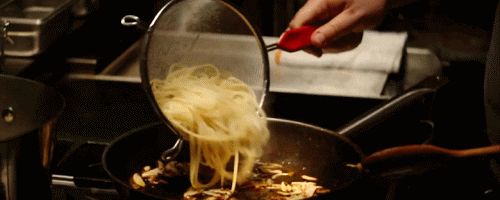The gluten-free diet isn’t as healthy as you think it is

While the gluten-free diet was once only considered a medical treatment, it’s now become a trendy lifestyle being endorsed as healthy and life-changing.
The diet eliminates gluten, which can be found in grains like wheat, barley and rye. Doctors recommend the diet for people who are diagnosed with celiac disease - an illness in which the small intestine is hypersensitive to gluten.
Nowadays people are adopting the lifestyle as a way to treat many other ailments. Several experts caution that self-prescribing yourself could be more harmful than you think.
Dr. Peter Green, director of the Celiac Disease Centre at Columbia University and author of “Gluten Exposed,” says the gluten-free diet is a medical treatment, giving it a medical legitimacy that other diets don’t have.
ALSO SEE: The difference between white eggs and brown eggs
“There is science behind gluten and celiac disease, but the extrapolation of this toxicity to people who don’t have celiac disease doesn’t have a scientific basis. There’s miseducation that this is somehow a healthy lifestyle.”
He adds that books like “Grain Brain” and “Wheat Belly” attribute many ails to wheat, making the diet appear as an easy solution for people who believe they have food sensitivity.
“Books that make wild claims of an easy fix are best-sellers. A scientific book is not a best-seller.”
It doesn’t help that the lifestyle is endorsed by athletes, like Novak Djokovic, who credits his success to the diet. Victoria Beckham, Gwyneth Paltrow and Miley Cyrus also hail their gluten-free ways - Cyrus going so far as to say it changes your skin, physical and mental well-being.
“It’s fantasy. I think there’s generally this desire for people to be improved, be better and it can be done by dietary measure and it’s a natural way to do it.”

A recent study found that the diet is unhealthy for children who haven’t been diagnosed with celiac disease. According to Dr. Green, the same goes for adults - the health risks apply to any age group.
“I think it’s a trend that has been picked up by the food industry, by non-traditional medical practitioners and it’s not based on any science.”
What people fail to realize is that gluten-free foods are packed with sugar, salt and fat. Plain rice, which is gluten-free, may even be loaded with harmful metals.
“There is one study showing that people on a gluten-free diet have increased levels of lead, mercury and arsenic.”
The diet also eliminates foods high in important nutrients, like fibre.
“We do see people who are vitamin deficient with neurological problems from their gluten-free diet.”
ALSO SEE: This is the best way to clean your fruits and vegetables
Dr. Green says a restricted diet, one which restricts gluten, can be fine as long as it’s healthy. If you want to eat less gluten but not give it up completely, bread and pasta are the two foods he would recommend to cut out. However, for anyone who wants to cut it out completely, working with a dietitian is the safest way to go.
“I think if people want to lose weight they should restrict carbohydrates and exercise more and in that way a gluten-free diet resembles a low carb diet, low calorie diet. To be gluten-free involves a lot more.”
Gluten has become a scary word to a lot of people and grocery stores now carry more packaged foods with clearly marked ‘gluten-free’ labels.
While the signs can be tempting, keep in mind that you shouldn’t avoid gluten if you don’t have to.
What do you practice a gluten-free diet? Let us know by tweeting @YahooStyleCA.
